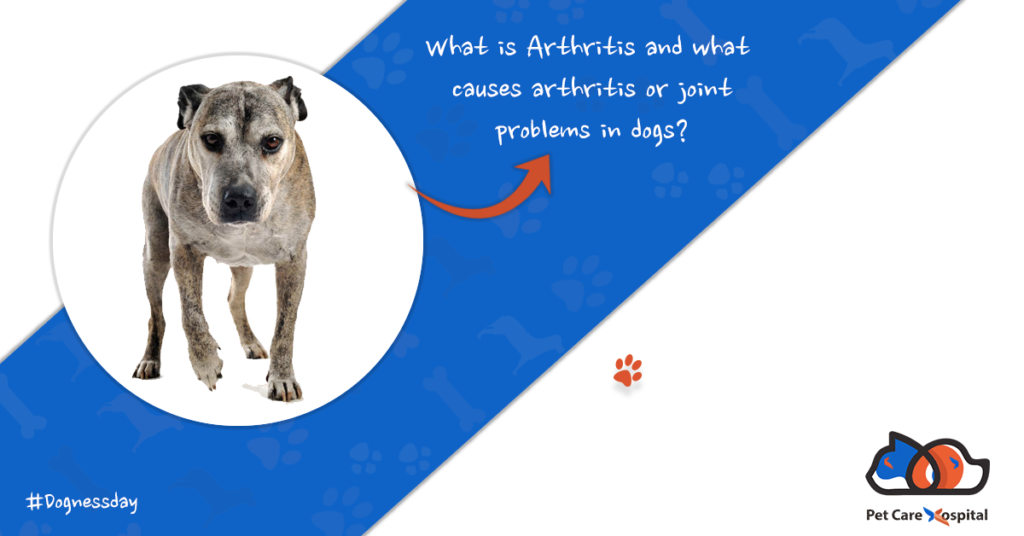What is Arthritis in Dogs?
Dogs joints take a lot of pounding from chasing tennis balls to running or jumping off the back deck. For some dogs, this is a big issue as this causes injuries and can lead to joint-related problems such as ACL tears and osteoarthritis. Dr. Satish Yadav, Director at Pet Care Hospital talks about dog arthritis treatment, best arthritis medicine for dogs and what's new in their treatment.
What causes arthritis or joint problems in dogs?
To explain this, we categories the joint problem in dogs into two:
1. Developmental and,
2. Degenerative problems
1. Development Problems:
Joints do not develop properly in a number of different ways. Example: Hip or Elbow Dysplasia
2. Degeneration Problems:
Degeneration covers many areas but the most common cause of arthritis in dogs is cruciate ligament problems. Which means that the ligament is degenerating over time and causing instability and secondary osteoarthritis.
What are the signs and symptoms of arthritis in dogs?
- Intermittent lameness.
- Reluctance to rise or move.
- Stiffness (especially after vigorous exercise or prolonged periods of rest; “bunny-hopping” gait)
- Swollen joints; may be warm and tender.
- Visible joint deformities.
- Painful joints (when touched/palpated or moved)
In general, increased size, and weight are always predisposed of joint problems. So the poster children for both developmental and degenerative problems are going to be the bigger dogs.
What are the common treatments for osteoarthritis or joint problems?
We basically categorize the treatment into two:
1.) Surgical Treatments: This ranges from arthroscopic cleaning of a joint to total joint replacement.
2.) Non-Operative Treatments:
While focusing on the weight management and condition we try to get the dog to an ideal weight by decreasing the stress on its joints.
Inflammation is also decreased as fat is a source of inflammation in the joints.
Dogs’ strength is improved as muscle mass and muscle function protects the joints and helps the overall functions as well.
Then there are various types of medications, foods, and food additives. For drugs, there are anti-inflammatories, analgesics, and pain relievers.
